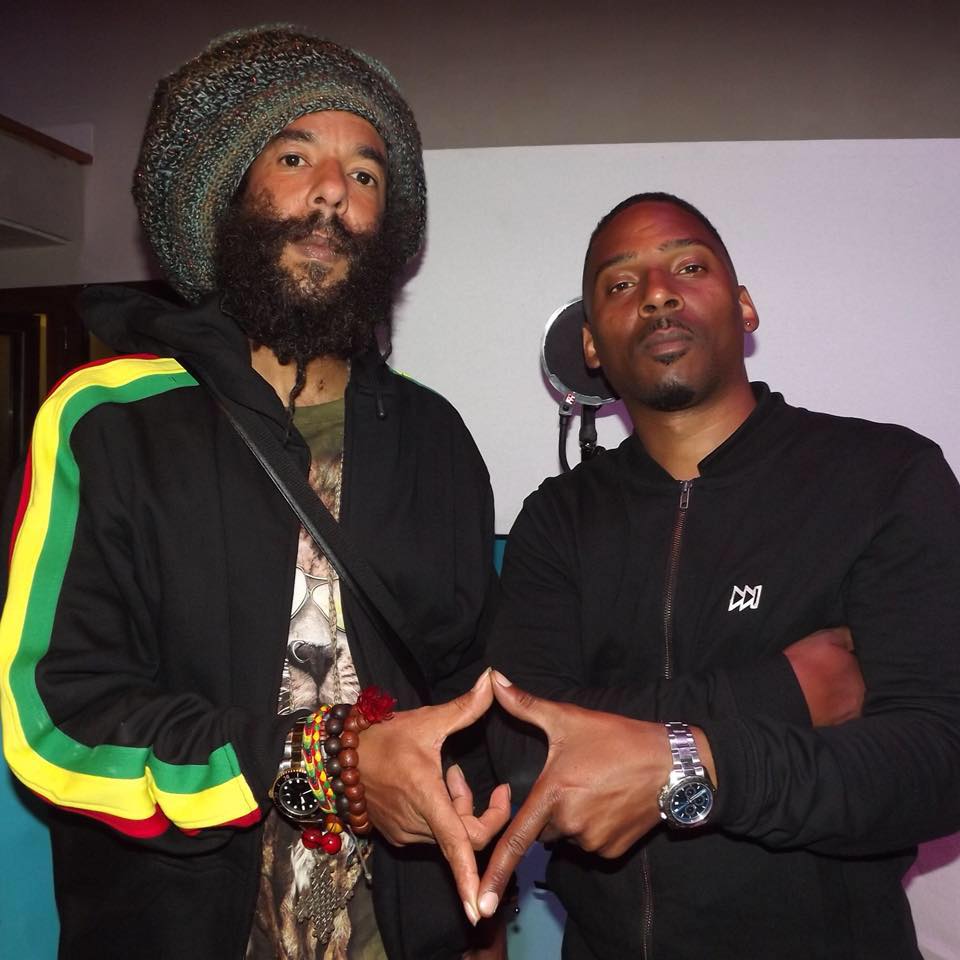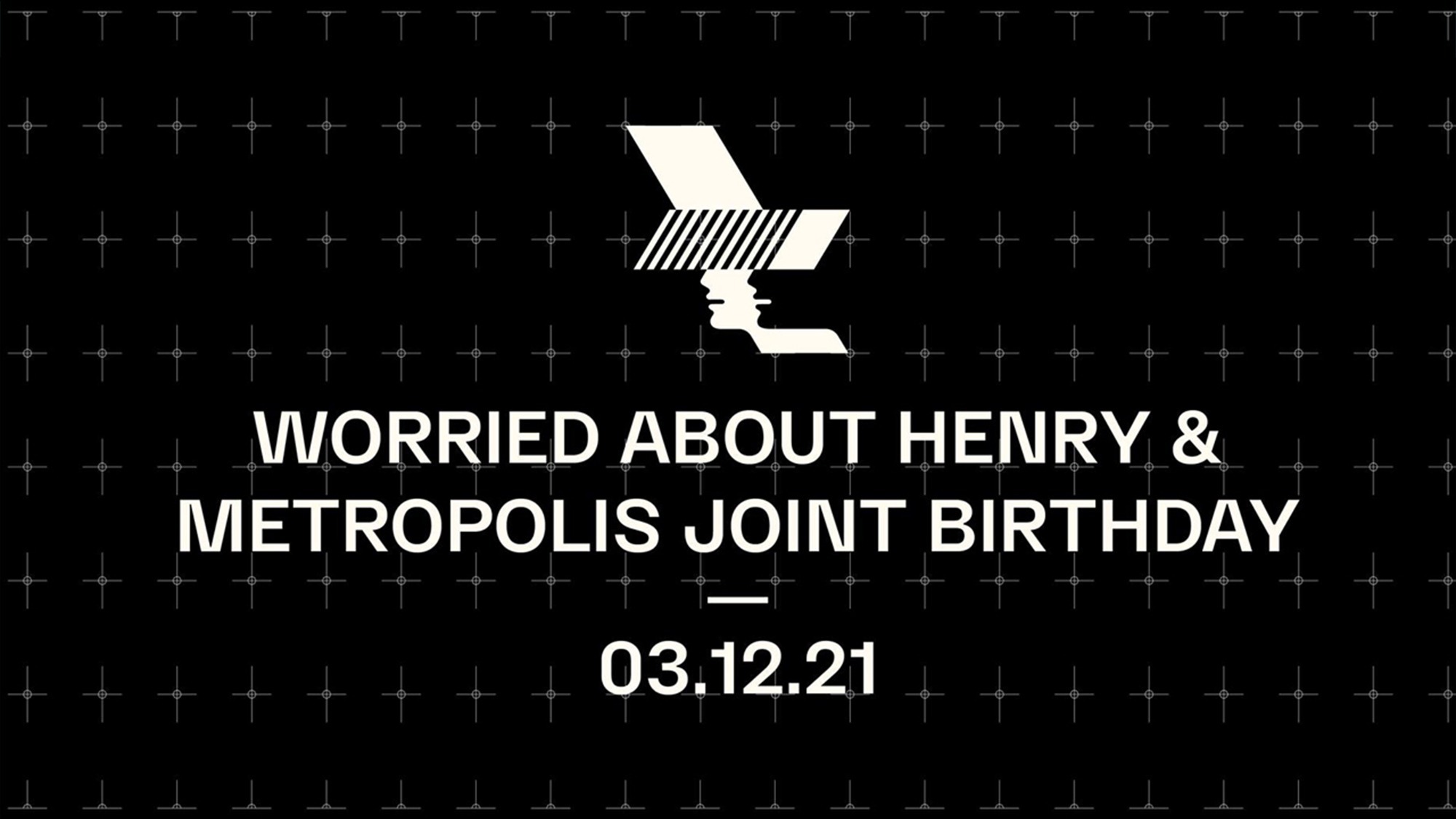Congo Natty
Mikail Tafari aka Congo Natty aka Conquering Lion aka X Project aka Rebel MC has lived a fascinating life but, he says, his story isn’t really his story, it isn’t about him. “It’s the journey of my ancestors – the journey of the children of slaves.” ..
Mikail Tafari aka Congo Natty aka Conquering Lion aka X Project aka Rebel MC has lived a fascinating life but, he says, his story isn’t really his story, it isn’t about him. “It’s the journey of my ancestors – the journey of the children of slaves.” Mikail, then just plain Michael West, grew up in Tottenham. His father came from Kingston, Jamaica, his mother from Wales. He didn’t even know that this was unusual until he started at school and someone commented that his mother was white. Looking back, before that he didn’t really know what race was or was meant to represent. Music was an ever-present, not just from his parents, but all around him. He first DJed at a party aged ten, when the DJ got “lean up” and he had to take over. He got a pound for his troubles and felt puffed up with the praise. The local youth club, Trojan, invited soundsystems in every Friday for a dance and every Friday he was there. Before he was twenty he and some friends started their own soundsystem, Beat Freak, playing hip hop, reggae and the house records that were just starting to penetrate the streets of London from Chicago and New York. Love of music ran alongside a need to take care of business and a healthy disrespect for the law. “We didn’t have anywhere to play so we had to break into places, then set up a dance and charge at the door.” Playing out with the sound led Rebel to record. He had a crazy mix he did with a beat and the Eastenders theme tune, so he found a studio where he could make a version and put a rap over the top. Having done one, his appetite for the process grew. He wanted to get back in and do more, develop his ideas a bit more, work it out. It was this urge to spend more time in a studio that led him to Double Trouble. He was flicking through a music magazine looking for somewhere cheap to record and he came across a place in New Cross that was only £5 an hour. It was Double Trouble’s studio. He started working out of there and, at some point, they all decided to collaborate. The results were “Just Keep Rockin’” and “Street Tuff.” It’s easy to hear them now as pop music (although the blueprint for grime’s chart ascent 15 years later was in there, too). That wasn’t how they were envisaged. “They were still kinda hard tunes. They were breakbeats with reggae samples and everything. They weren’t started off as being pop tunes. We done the tunes in New Cross and then they were floating around for about a year. We’d started recording other stuff, still growing and moving. Then all of a sudden there was a label that was interested.” Tafari sums up the experience of being fed into – and then spat out of – the mainstream music business. “At first it’s all good. At first. It’s a bit like Hansel and Gretel when they get to the house and they’re hungry and there’s all sweets and so on. But then you start to feel a little bit sick and then we all know what happens next. The machine that loved you decides it hates you.” Rebel MC had already moved on, too fast for the backlash to harm him. With the albums “Black Meaning Good” and “Word Sound And Power,” and the single (and label) “Tribal Base” he was already marking out the roots of what would become Jungle. He started and ran a series of labels, Tribal Bass, then X Project, then eventually Congo Natty, from which came some of the defining releases of the day. “There was a revolution of self. Artists realised they could do it better than the labels. Because the labels were blind right then. Every ten or fifteen years you get to that point with the labels where they’re out of touch. I started my label X Project – without no name – cos I didn’t want people knowing it was me. Because once they know it’s you, ‘Oh, it’s Rebel MC, it’s Street Tuff innit?’ Without that it’s free. You’re free.” From ’92 to ’94 he and others developed Jungle into the defining sound of the era, one which musicians are still coming to terms with to this day. Jungle took the bass of roots and dub reggae and reinvented it. “Jungle carries a sonic that is so mystical that if you entered a dance in 1994 you went through a portal. And you were there, in the zone. B-line, unadulterated b-line. Jungle came with this frequency that shocked everything in British music.” For Tafari, “Jungle was a revolution. Jungle was the first time we’d got our own music, our own way of talking, our own way of dressing. Everything. And it’s from this fusion of British, African, Indian, Jamaican, Chinese – this melting pot. And that’s Jungle music.” But, like all revolutions, the powers that be wanted it shut down. Its high water mark was, in Rebel’s own judgement, the Notting Hill Carnival of 1994. “I saw what Jungle did at Carnival. The vibration got so hyped until it just went crazy. The frequency got so powerful. And that’s why Jungle got the fight it did. How did we go from that to drum and bass? Jungle is like a mirror that was broken into many, many pieces.” This reaction coincided with a profound change in Tafari’s spiritual life, as this was the year he embraced Ras Tafari. “I saw Ras Tafari, Haile Selassie I and that changed my life. I took on the realms of Ras Tafari as a Rastaman. But the journey of Ras Tafari is not just about saying ‘I’m a Ras Tafari’ and wearing the colours and the natty and everything. It’s more about the life. The journey. We’re all imperfect. Everyone has sinned – and will sin. As a Rastaman we’re trying to eradicate negative traits – hate, anger, aggression. All these things are based on fear. Ras Tafari in one word is love. And it’s living love. True love is the hardest thing to live by. You have to love your enemy. You have to bless someone who’s cursing you. I’m not on that level. I’d love to be on that level. To be like Gandhi. He don’t get angry. I get angry!” From his father, Rebel bought the house in Tottenham he’d grown up in and ran his operations from there, surrounded by his family, his old bedroom now his studio, his living room full of the 12”s he was pressing and selling. “My yard was full of tune – like a warehouse! We’d broken away from the whole machine. We were running our own mechanism, our own threads.” He combined his Tottenham operations with making trips to Jamaica to reconnect Jungle with the culture from which it had taken its most important influences. Here he made contact with Rasta communities as well as playing Jungle in the heart of the Kingston slums, the experience of which led to the release of the album, “Tribute To Emperor Haile Selassie I.” But the business of selling music became less important as Rebel’s spirituality grew. “As a Rastman you have to ask what you’re aiming for. My aim was always to get to Ethiopia and get out of Babylon. Getting out of Babylon meant gathering the family, getting rid of all the things that tie us down. And that was the point of my journey. So when I was making the music now, this music was going to set me free. But also was a message, an important message for this time. So it got to the point where it wasn’t about the music business for me.” In 2007, he and his family finally left and moved to Shashamane, the land Emperor Haile Selassie I left to the Rasta and other Caribbean citizens who wanted to return to Africa. It was a whole other world – daily power outages, no running water, whatever you wanted being built by your own hands, as well as the single largest Rasta community in the world. But something was tugging Rebel back. The importance of the visionary – of literally seeing and hearing guidance from Jah – is a central but misunderstood part of Rastafari. Mikail Tafari is a visionary twice over. Jah told him to return to the UK and make music. He tried to ignore it, but when things began to go wrong with the business he’d left in London – which was supposed to pay him the income his extended family were relying on – he knew it was time to go back to Babylon. He arrived in the UK in late 2008 “with thirteen quid. I got three little ones and two bigger ones and my wife. And thirteen pound. That’s not a good look. So at that point I started again.” That new start reaches its culmination, its zenith, with “Jungle Revolution.” Ten tracks long, featuring all of the extended Congo Natty family (plus, in the form of Skip McDonald and Adrian Sherwood, a healthy link to On-U Sound as well), it clearly lays out the way in which Rebel sees Jungle as a re-boot of roots reggae for a new century. Full of blood and fire, the sternum-buzz of sub-bass, rapid fire drum breaks, sweet hooks, righteous anger and professions of love, it’s the kind of passionate, committed, raw and spiritual, beautiful record that doesn’t come along that often. “The message of reggae is Ras Tafari and Ras Tafari is love. They sang about love your brother but they was also prophesying and talking about the system, talking about things that were going on in the world. I saw Jungle as being that same music, where we were going to spread a message. “Jungle is a part of all musics. It’s not just this new music. Blues man are junglist. Jazz man are junglist. Hear their story – it’s jungle’s story. You see this journey over and over again. The journey is the journey of the African slave. If you look at music, what these people have given to the world – Bob Marley, Jimi Hendrix, John Coltrane, whoever – it all comes from suffering. From poverty, from racism. And this music keeps coming out of their soul. And I see Jungle as our soul in the 21st century. But this time it’s got no colour. It’s not the black man’s story no more. It’s our story. We’re all in a kind of slavery now. Modern day slavery, mental slavery.” He stops and takes another pull of ganja. “I got my army greens on for a reason – I’m running a revolution.”


